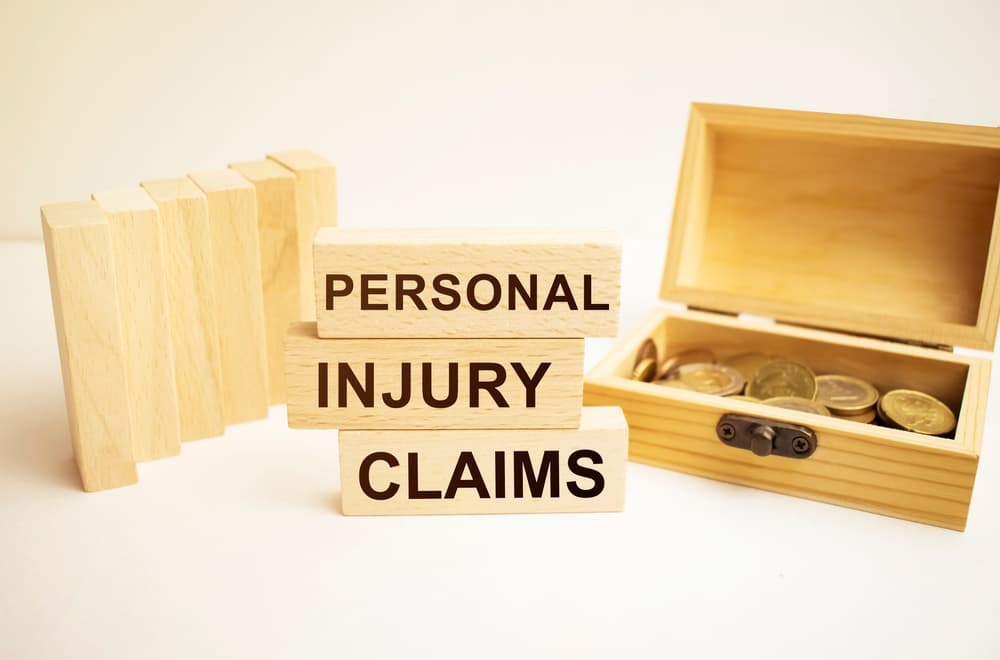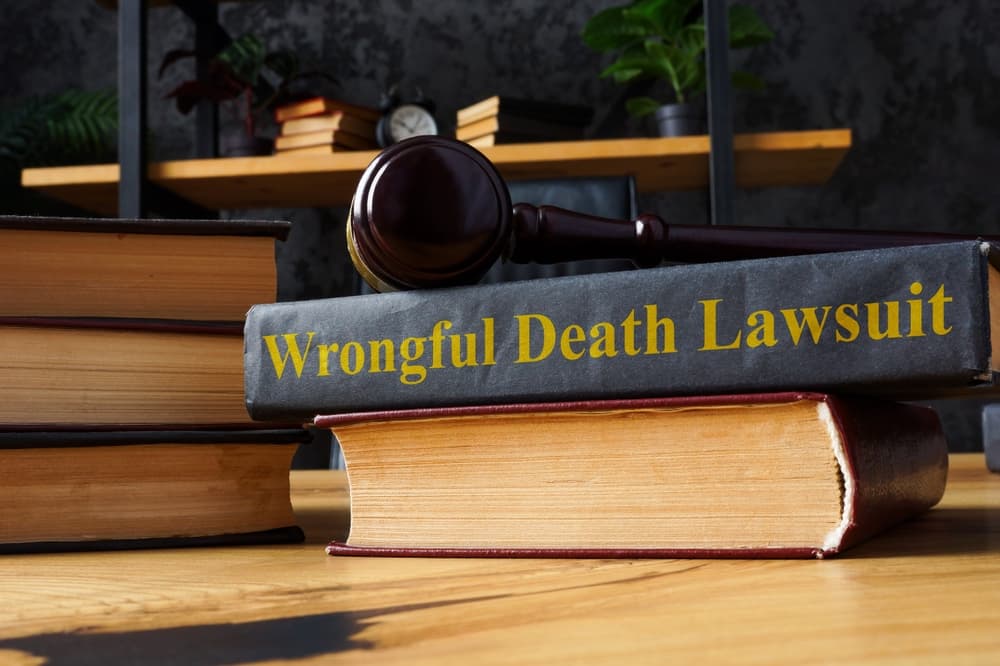Surviving family members, such as spouses, children, or parents, can usually file a claim when someone's actions cause the death of a loved one.
Unfortunately, the exact parameters of who can file a wrongful death suit vary by state, creating confusion and uncertainty for those seeking legal action.
However, varying state laws don't mean surviving loved ones lack recourse.
Understanding the general guidelines for who can file and what ensures a successful outcome can help ease financial burdens and provide clarity during a difficult time. Contact an experienced Wisconsin wrongful death lawyer to seek legal assistance.
Wrongful Death Lawsuit: Do I Have a Valid Case?
Knowing if you have a valid case is challenging, especially when navigating through the complexities of state-specific laws.
Generally, for a valid claim, you must prove that death was:
- Negligent: This means that the death was caused by someone else's careless or reckless actions, such as a car accident caused by a drunk driver.
- Intentional: This means that the death was caused by someone intentionally harming another person, such as in cases of murder or manslaughter.
- Default: This means that a defective product, such as a faulty car part or medication, caused the death.
- Omission: This means that the death was caused by someone not taking reasonable actions to prevent harm, such as a doctor failing to diagnose and treat a patient's illness properly.
- Wrongful Act: This means that the death was caused by a violation of someone's legal rights, such as in cases of police brutality, criminal conduct, or workplace accidents.
You may think your case doesn't fall into these categories. In truth, the only way to tell if you have a valid claim is to contact a wrongful death attorney. In a free case evaluation, they can listen to your story and provide insight into the best legal options.
What Causes Wrongful Death?
Medical Malpractice

Medical professionals must provide a certain standard of care to their patients. When they fail to meet that standard, and it results in death, it may be considered wrongful.
Examples of medical malpractice include but are not limited to:
- Surgical errors
- Misdiagnosis or failure to diagnose a severe illness
- Prescribing incorrect medication or dosage
- Anesthesia errors
In these lawsuits, victims' families may rely on expert medical witnesses to confirm that a medical professional's actions caused the death.
Car Accidents

Motor vehicle accidents remain one of the most common causes of wrongful death suits. This can include accidents involving cars, motorcycles, trucks, pedestrians, and cyclists.
In these cases, the surviving family members may hold the at-fault driver accountable for their negligence, especially if:
- The driver was under the influence of drugs or alcohol
- They were distracted, such as texting while driving
- The motorist was uninsured or underinsured
- The driver was speeding or violating traffic laws
Death in a car accident also results from issues with the vehicle itself, such as defective brakes or tires. In these cases, the manufacturer may be held liable for their negligence.
Workplace Accidents
Employers have a responsibility to keep anybody on the premises safe. When they fail to do so, an employee or visitor dies. As a result, it can be considered wrongful death.
The most common causes in the workplace include:
- Falls from heights or on slippery surfaces
- Exposure to hazardous materials or chemicals
- Machinery malfunctions
- Vehicle accidents while on the job
Sometimes, the employer may be liable for failing to provide proper safety training, failing to maintain equipment, or ignoring known hazards in the workplace.
In other cases, a third-party contractor or manufacturer may be at fault for the accident.
Defective or Harmful Products and Pharmaceutical Medication
As modern technology advances, so does the potential for faulty or dangerous products to enter the market. If someone dies as a result of using a defective product or harmful medication, it can be considered wrongful.
Examples of these types of cases include:
- Defective vehicle parts leading to a fatal car accident
- Dangerous household appliances causing fires or electrocution
- Harmful medications prescribed by doctors or purchased over the counter
In these cases, the manufacturer may be liable for negligence in creating and distributing a defective product. A doctor or pharmacist may also be responsible for prescribing or distributing harmful medication.
Food or Water Contamination

Environmental contamination is a growing concern in society today. When it comes to food or water, contamination can be deadly. If someone dies as a result of consuming contaminated food or water, the responsible parties are liable for wrongful death.
In these cases, the responsible party may include:
- Food manufacturers or distributors
- Restaurants or other establishments where the food was consumed
- Municipalities or companies responsible for water treatment and distribution
Eventual death from contamination may have taken years to develop and might require extensive investigation to determine the cause. Choosing an experienced wrongful death attorney with a successful track record of representing victims' families in these cases is vital.
Do I Have the Right to Sue for Wrongful Death?
The complexities of personal injury, family, and estate law converge to create the rules that govern who can bring this type of lawsuit.
While the laws differ in every state, generally, the following parties can always file a lawsuit for wrongful death:
- Surviving spouse. If the deceased is married at the time of death, the surviving spouse is considered to have the highest right to bring a claim. If the surviving spouse lacks cognitive capacity, the right to file may pass to another family member or legal representative.
- Surviving children. If there is no surviving spouse, the children of the deceased retain the right to file a lawsuit. If serving children are minors at the time of death, their appointed guardian or representative can file on their behalf.
You may still sue if you don't fall into these two categories. For example:
- North Dakota allows surviving parents to sue in addition to a living spouse or child.
- Wisconsin allows the executor of the estate or surviving domestic partner to sue in addition to the aforementioned parties.
- Minnesota has some of the most lax wrongful death laws, allowing for a wide range of parties to file a claim, including grandparents, siblings, and financially dependent family members.
Multiple other factors may influence who can file a lawsuit, such as any possible contributory negligence by potential claimants.
This is why you must consult an experienced wrongful death attorney.
With their experience and understanding of the laws in your state, they can advise you on whether you have the right to sue and ensure full, fair compensation for your loss.
Is a Wrongful Death Lawsuit the Same as a Personal Injury Claim?

Although they may have some similarities, a wrongful death suit and a personal injury claim differ greatly.
Personal injury accident claims are filed by the person who was directly harmed as a result of someone else's actions up to the point of their death. This means the injured party seeks compensation for medical bills, lost income, and other damages incurred due to the accident.
These claims are usually negotiated and settled between the parties involved, with a trial only necessary if an agreement cannot be reached. When the final settlement is reached, the injured party receives the compensation directly.
In contrast, a wrongful death lawsuit is filed by close family members or a legal representative on behalf of someone who passed away as a result of someone else's actions.
The damages sought in these lawsuits differ and may include:
- Funeral and burial expenses
- Loss of future income and financial support
- Loss of companionship and emotional pain
- Medical expenses incurred before the person's death
The compensation awarded is typically distributed among the surviving family members based on their relationship to the deceased.
In some cases, a person may file a personal injury claim that their survivors may convert into a wrongful death suit if they pass away because of their injuries. Do this with the guidance of an attorney.
How to File a Wrongful Death Suit
Understand the statute of limitations.
Every civil and criminal case has a statute of limitations, which is the time frame for legal action.
This time frame varies by state and type of lawsuit but generally ranges from one to three years from the date of death or discovery of its cause.
Though a few years seems like a long time, it isn't. Months and years can fly by, robbing you of the opportunity to seek justice and financial compensation for your loss.
This is why acting quickly and consulting with a qualified attorney as soon as possible is crucial to avoid further emotional and financial burdens.
Help your case.
Organization is critical in any lawsuit. Collecting all the evidence, facts, and figures related to your loss can help strengthen your case. Evidence may include medical records, police reports, witness statements, and financial documents.
A seasoned attorney will also conduct their own investigation into the matter, gathering additional evidence and building a strong argument on your behalf.
Finally, always forward all case-related communications to your lawyer. It is easy to say or do something out of grief that can later be used against you in court, and your attorney is the best way to protect your best interests.
Choose an award-winning wrongful death lawyer.
The complexity and sensitivity of these lawsuits require an award-winning attorney with:
- Strong communication skills. Your attorney should be able to clearly and regularly communicate case details to you as they occur.
- Compassion and empathy. Losing a loved one is traumatic, and a compassionate attorney will understand the emotional toll it takes on their clients. They will provide support and guidance throughout the legal process.
- Thorough knowledge of state laws. Every state has different rules and regulations surrounding these cases. An seasoned attorney will intimately understand these laws and how they may affect your case.
- Proven success in similar cases. Look for an attorney who has successfully handled cases similar to yours. This indicates their experience and ability to handle your case effectively.
- Resources to handle your case. These complex cases involve multiple parties, requiring significant time and resources. Make sure to choose a law firm with the resources needed to handle your case properly.
Many of the best law firms offer free consultations, which are the perfect opportunity to ask questions and determine if they are the right fit for your case.
Scheduling one is easy, with many offering in-person, phone, and online consultations at a time that suits you best.
Are You Eligible to File a Wrongful Death Suit? Find Out Now.
Losing a loved one as a result of someone else's actions is devastating, and no amount of compensation can bring them back. However, seeking justice through a wrongful death suit can hold the responsible party accountable and provide financial support for you and your family.
If you believe you may have grounds for a wrongful death lawsuit, it is essential to consult with an experienced personal injury attorney as soon as possible. With their compassionate legal counsel and experience, you can move forward from this devastating tragedy.
